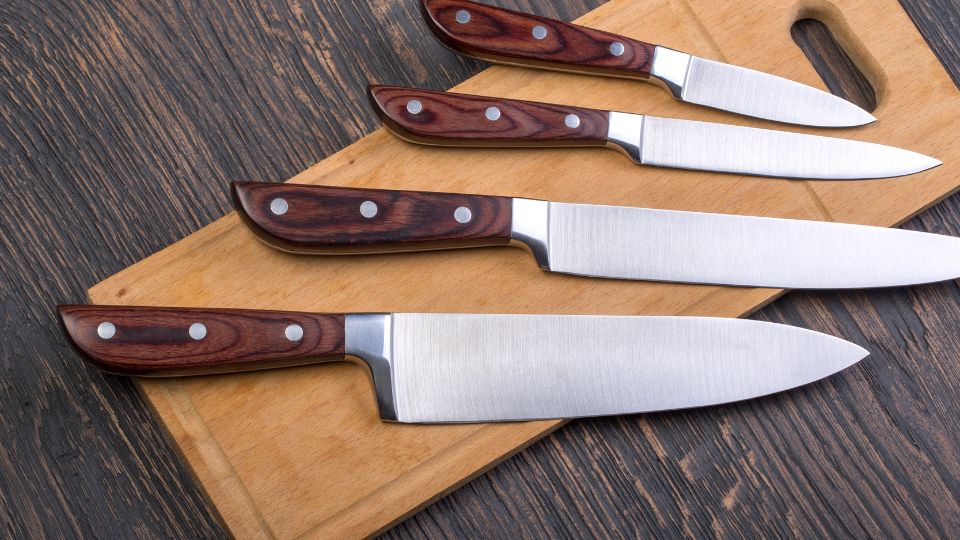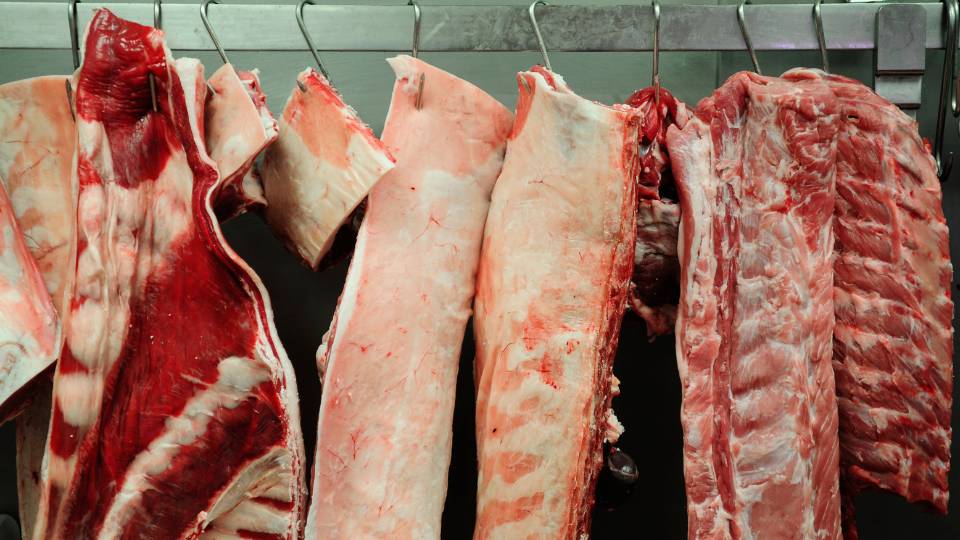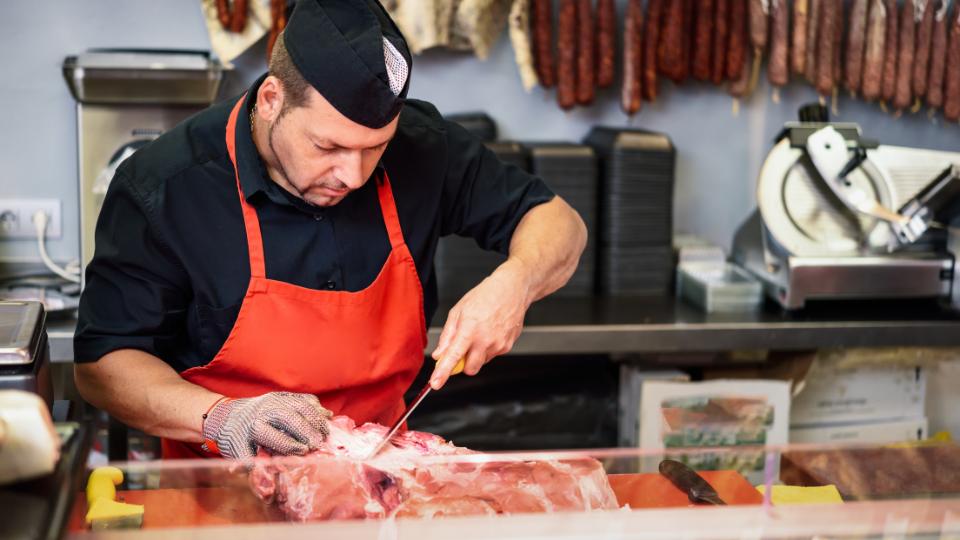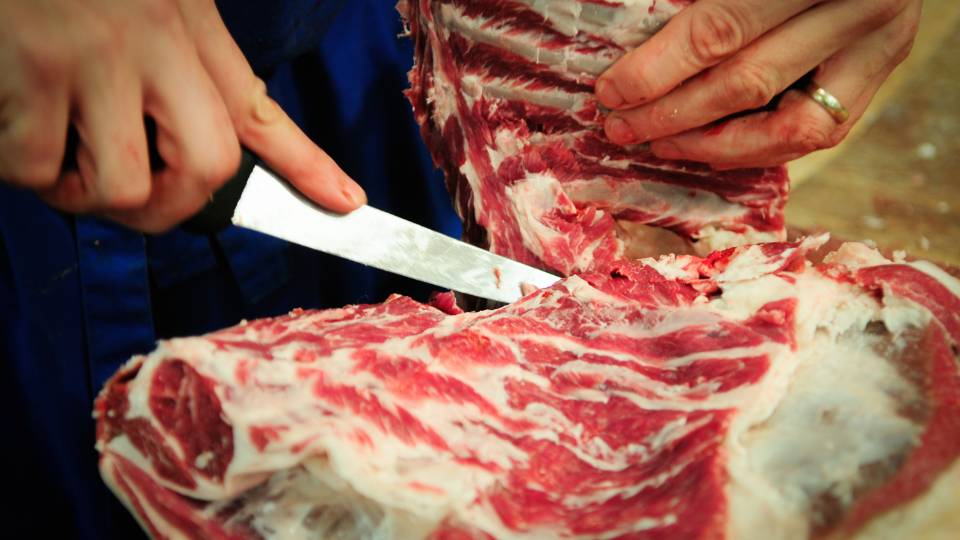
Proper disposal of knives is of utmost importance in the UK to ensure safety and compliance with regulations.
This comprehensive guide explores various aspects of knife disposal, including taking knives to the police station, safe methods for bin disposal, locating knife amnesty bins, donating knives, and understanding the risks associated with improper disposal.
By following these guidelines, individuals can contribute to a safer environment, reduce potential harm, and promote responsible knife disposal practices across the country.
Table of contents
- How to dispose of old kitchen knives
- Our top 5 recommendations
- How should I dispose of knives in the UK?
- Can I throw knives in a bin in the UK?
- Can I recycle kitchen knives in the UK?
- How to handle & dispose of knives in the UK?
- Are there any alternative methods to dispose of knives in the UK?
- Taking Knives to the Police Station
- Safe Disposal Methods for Bins
- Finding Knife Amnesty Bin Locations
- Donating Knives
- Risks of Improper Knife Disposal
- UK knife disposal statistics
- Conclusion
How to dispose of old kitchen knives
When it comes to kitchen safety, handling every aspect with caution is crucial, including the proper disposal of kitchen knives.
Safely disposing of kitchen knives not only ensures your own safety but also prevents accidents for waste management workers.
Read on for valuable insights and answers to the most frequently asked questions about how to dispose of kitchen knives safely in the UK.
Our top 5 recommendations
1. Local Recycling Centres
Local recycling centres play a vital role in reducing waste and promoting sustainability within communities.
Many of these centres accept metal items, including knives, for recycling. This option ensures that the metal from the knives can be reclaimed, melted down, and used to create new products, thereby conserving valuable resources.
When taking knives to a recycling centre, it’s important to follow any guidelines they have in place. These may include requirements for handling sharp objects safely, such as using protective packaging or containers.
By choosing this option, you contribute to the circular economy and help minimise the environmental impact of discarded knives.

2. Knife Sharpening Services
Knife sharpening businesses often work with various types of blades, and some may accept old knives for recycling purposes.
They might have specialised methods for repurposing or recycling the metal from these knives, incorporating them into their sharpening process, or passing them along to metal recycling facilities.
Before bringing knives to a sharpening service for recycling, it’s recommended to enquire about their specific recycling practices and whether they accept such items.
This option can give new life to old knives while supporting local businesses and encouraging sustainable practices.
3. Scrap Metal Collection
Scrap metal collection programmes provide an avenue for recycling a wide range of metal items, including knives.
These programmes gather metal waste, which is then processed and used to create new metal products. Participating in scrap metal collection contributes to reducing the demand for virgin metals and minimises the energy-intensive processes involved in mining and refining ores.
When considering this option, you should sort and prepare the knives according to the guidelines provided by the scrap metal collection programme in your area.
By recycling knives through this route, you actively contribute to resource conservation and the reduction of greenhouse gas emissions associated with traditional metal production.
4. Household Hazardous Waste Collection
In cases where knives have non-metal components, such as plastic handles, they may need to be disposed of as household hazardous waste.
This ensures that any potentially harmful materials are managed and treated properly to prevent environmental contamination.
Household hazardous waste collection programmes are designed to handle items that pose risks to human health or the environment.
Before disposing of knives through this channel, check with your local waste management authority to understand the specific guidelines for packaging and dropping off such items.
This option safeguards the well-being of your community and prevents harmful substances from entering landfills or waterways.
5. Donate or Repurpose
If your knives are still in usable condition, consider donating them to charitable organisations, thrift stores, or community kitchens.
Donating knives allows others to benefit from their utility, reducing the need for new items to be purchased. Repurposing is another creative option, where the handles or other components of the knives can be used in DIY projects.
Crafting enthusiasts and artists often find innovative ways to give old items new life, promoting sustainability through creativity.
Before donating or repurposing, ensure that the knives are cleaned and sanitised, and check with the intended recipient about their specific requirements and preferences.
This approach not only reduces waste but also fosters a sense of community engagement and resourcefulness.
How should I dispose of knives in the UK?
In the UK, it is important to follow local regulations for knife disposal.
The recommended method is to wrap the knife in several layers of newspaper or cardboard, secure it with tape, and label it as “sharp objects” or “kitchen knives” to alert waste management personnel.
Additionally, you can contact your local recycling centre or municipal waste management facility for specific guidelines.
Can I throw knives in a bin in the UK?
No, throwing kitchen knives directly into the regular trash bin is not advised in the UK.
Exposed blades pose a significant risk to waste management workers who handle the waste.
To prevent accidents, always ensure the blades are securely wrapped and protected before disposal.
Can I recycle kitchen knives in the UK?
Recycling kitchen knives in the UK can be possible, but it depends on local recycling provisions. Not all recycling centres accept sharp objects like kitchen knives due to safety concerns.
It is crucial to check with your local recycling facility or council to determine if they have specific provisions for accepting kitchen knives.
If recycling is not an option, consider donating or repurposing them instead.
How to handle & dispose of knives in the UK?
If you have damaged or broken kitchen knives in the UK, it is important to handle them safely.
Wrap them in several layers of newspaper or cardboard before disposal to prevent injuries.
Additionally, reading your local waste management authority’s guidelines is recommended for specific instructions on handling damaged or broken knives is recommended to ensure safe disposal.

Are there any alternative methods to dispose of knives in the UK?
Yes, in the UK, there are alternative methods for disposing of kitchen knives.
Consider donating them to charitable organisations or community centres that accept kitchenware donations.
You can also repurpose the knives for non-kitchen use, such as in crafting or DIY projects.
Always prioritise safety when repurposing and ensure that the blades are appropriately secured or dulled to avoid potential injuries.
Knowing how to safely dispose of kitchen knives in the UK is essential for maintaining a hazard-free environment in your home and ensuring the well-being of waste management workers.
By following local regulations, wrapping the blades, and labelling the package, you can ensure that these sharp objects are handled with care throughout the disposal process.
Contact your local waste management facility for specific instructions, and consider recycling, donating, or repurposing kitchen knives to promote sustainability and reduce waste.
Let’s prioritise safety and responsible waste disposal for the benefit of our community and the environment in the UK.
Taking Knives to the Police Station
A common and recommended method for disposing of knives in the UK is taking them to the local police station. However, it is crucial to verify the specific procedures followed by your local police department.
Contact them in advance to confirm if they accept knives and to inquire about any particular requirements.
Some police stations have designated drop-off points or amnesty bins specifically designed for knife disposal. These measures ensure safe handling and proper disposal of the knives.
By choosing this option, individuals actively participate in efforts to prevent potential harm and support community safety initiatives.

Safe Disposal Methods for Bins
When access to a police station or designated knife disposal location is not possible, individuals can safely dispose of knives in bins by following specific precautions.
The key concern is to minimise the risk of injuries to waste management personnel and others.
Start by securely wrapping the blade using multiple layers of tape or cardboard. This helps create a protective barrier and prevents accidental cuts.
Next, place the wrapped knife in a sturdy container, such as a plastic bottle or a rigid box.
Ensure that the container is sealed and prominently label it as “Sharp Objects” or “Caution: Knives” to alert others about its contents. By adopting these safety measures, individuals contribute to a safer waste collection and handling process.
Finding Knife Amnesty Bin Locations
Knife amnesty bins are secure and regulated disposal points specifically designated for knives.
These bins are typically found in public spaces, such as police stations, community centres, or other authorised locations.
To locate the nearest knife amnesty bin in your area, consider contacting your local police department or visiting official government websites that provide information on knife amnesty initiatives.
These bins are designed to collect knives anonymously and reduce the risk of improper disposal.
By utilising knife amnesty bins, individuals actively contribute to community safety by ensuring the removal of potentially dangerous knives from circulation and preventing knife-related incidents.
Donating Knives
Donating knives that are still in good condition and usable is an excellent way to prevent waste and benefit others.
Several organisations, including charitable institutions, culinary schools, or community centres, may accept kitchen equipment donations.
Before donating, ensure that the knives meet specific criteria and safety standards set by the organisation.
Some institutions may require knives to be in proper working condition, while others may accept knives for refurbishment or recycling purposes.
By donating knives, individuals extend their lifespan and provide opportunities for others to benefit from their use.
It is crucial to research and connect with the relevant organisations to understand their specific requirements and donation processes.
Risks of Improper Knife Disposal
Improper disposal of knives poses significant risks to individuals and the environment.
Knives that are not properly wrapped or secured can cause injuries to waste management personnel, unsuspecting individuals, or children who may come into contact with them.
Additionally, improper disposal may result in violations of local regulations, leading to fines or legal consequences. It is essential to follow recommended guidelines to ensure the safety of everyone involved.
By adopting responsible disposal methods, individuals actively contribute to a safer waste management process, minimise potential harm, and promote a culture of responsible knife disposal.
UK knife disposal statistics
Essex Police Destroys Almost a Tonne of Surrendered Knives
In the past six months, Essex Police has destroyed almost a tonne of knives that were surrendered in knife bins across the county.
This is equivalent to 11,263 knives and other sharp objects and weapons, weighing 940 kilograms.
The knives were taken off the streets and out of people’s homes so that they could no longer do harm. After each collection, the weapons are taken to a secure location and destroyed.
There are 16 knife bins located in towns and cities across Essex where people can safely deposit knives and other bladed articles.
The bins are funded jointly by the Office of the Essex Police, Fire and Crime Commissioner (OPFCC) and the Essex Violence and Vulnerability Unit (VVU).
In addition to the knife bins, Essex Police also works with the Ben Kinsella Trust to raise awareness of the dangers of carrying a knife. The Ben Kinsella Trust was set up in memory of Ben Kinsella, who was stabbed to death in London in 2008.
In the 12 months to April 2022, there were 1,629 knife-enabled offences recorded in Essex. This is a decrease of 13% from the 12 months to April 2020.
If you have any knives or other bladed articles that you no longer need, please do not throw them away.
Instead, take them to a knife bin or to your local police station. You can also contact the Ben Kinsella Trust for more information on knife crime.
Conclusion
Proper knife disposal is vital in the UK to ensure safety, compliance, and a healthier environment.
Whether it is taking knives to the police station, using safe bin disposal methods, finding knife amnesty bins, or donating knives, responsible disposal practices play a crucial role in mitigating risks and preventing accidents.
It is important to adhere to specific guidelines provided by local authorities, organisations, and law enforcement agencies to ensure the proper handling and disposal of knives.
By taking these steps, individuals actively contribute to a safer community, promote responsible waste management, and work towards a society where knife disposal is approached with utmost care and consideration.








